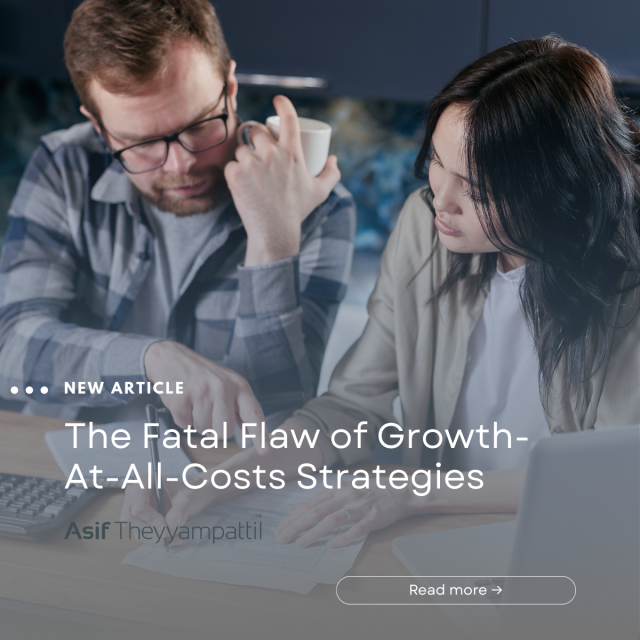
Dr. Asif Theyyampattil
Air Deccan and BlackBerry teach us a vital lesson: growth without purpose can be fatal.
Here’s what CEOs must know to avoid the same fate.
Growth is often celebrated as the ultimate measure of success for businesses. However, when companies prioritise growth at any cost, without a clear purpose, they risk sacrificing long-term sustainability — and even their survival.
One of the most significant hidden costs of a growth-at-all-costs mindset is excessive spending on branding, marketing, and sales efforts aimed at short-term gains. Without a clear purpose, companies must constantly invest in these “no-trade” expenses to maintain their momentum. Stop these efforts, and the growth curve quickly reverses. In contrast, a purpose-driven company invests in delivering real value to customers and stakeholders. Over time, this creates loyal customers who naturally evangelise the brand, reducing the need for costly trade-related expenditures.
Purpose also changes how companies respond to market challenges. While growth-driven businesses rush to hit numbers, often at any cost, purpose-led companies prioritise the value they bring to society. When the market shrinks or a crisis hits, purpose-driven organisations tend to share the available customer base with competitors, focusing on sustainable relationships rather than aggressive acquisitions. Companies built around superficial growth tactics often struggle and ultimately fail.
Consider the case of Air Deccan, India’s pioneering budget airline. Despite financial struggles, its founder, Captain Gopinath, personally requested the new owner, Mr. Vijay Mallya, to preserve Air Deccan’s original purpose of serving the common man. Unfortunately, this request was not honoured, as the management shifted focus to premium branding aligned with Kingfisher’s image. This departure from Deccan’s core values contributed to the eventual collapse of both airlines.
Similarly, Research In Motion (BlackBerry) lost focus on its purpose by attempting to compete with Android and Apple directly. While the market for secure, premium, luxury smartphones—targeting millionaires and high-net-worth customers—still exists and perfectly aligns with BlackBerry’s strengths, the company failed to recognise or capitalise on this opportunity then and continues to struggle today.
The clear lesson for CEOs and business leaders is this: always establish and maintain clarity of purpose before launching or changing any strategy. Growth without purpose is a fragile illusion; growth grounded in purpose creates resilience, loyalty, and long-term success.
What’s your view?
Have you witnessed companies stumble due to unchecked growth? How has purpose helped sustain your business through challenges? Share your experiences below.



